Photographs: Arnd Wiegmann/Reuters N Sundaresha Subramanian in New Delhi
A mysterious Mr X has surfaced in the UK Financial Services Authority's (FSA's) case against former UBS employee Sachin Karpe.
Mr X, as the person has been referred to by the UK's Upper Tribunal, denied he owned an account with the UK-based UBS Wealth Management, called Customer A account, which was used by the deposed UBS official to make large-scale unauthorised transactions. Mr X's denial came in an interview with the FSA held in front of the Indian market regulator, Securities and Exchange Board of India (Sebi), according to a judgment by the tribunal two weeks ago.
| Who is Mr X? |
| UK Tribunal says: Mr X's Customer A account at the centre of Sachin Karpe's operations Several purported loans, compensation of losses routed via the account Over $1.5-bn dollar trades and 𧼲-mn (roughly $1 bn) pound trades were done 67 unauthorised transfers made from the Customer A account to others Several payments made from Cell E account of ADAG to the Customer A account Mr X in all probability is an Indian, as his interview with the FSA took place in Sebi's presence |
While everyone is tight-lipped on the issue, the Sebi presence is a giveaway that Mr X is an Indian.
"It is observed that the so-called beneficial owner of Customer A (Mr X) had, when interviewed by the FSA in the presence of the Indian regulator, Sebi, denied that he held the Customer A account," the tribunal said in a judgment upholding an FSA order slapping a fine of pound 25 million (roughly $1.9 million) on the former UBS wealth management managing director.
An email questionnaire sent to Sebi asking for details of Mr X remained unanswered.
Click on NEXT for more...
Mystery deepens over Swiss bank
Photographs: Yuriko Nakao/Reuters
Mr X was the supposed beneficial owner of Customer Account A, used by Karpe allegedly to carry out unauthorised trading. Karpe, the tribunal said, "carried out unauthorised trading on various customer accounts, in particular using the account of one customer, 'Customer A'."
The total value of these transactions works out to nearly $2.5 billion or roughly Rs 14,000 crore. In this account, Karpe allegedly placed 321 foreign exchange trades between February 2007 and January 2008. "The trading comprised 192 trades on a US dollar sub-account with a total value of $1.5 billion and 129 trades on a British pound sub-account with a total value of pound 635.4 million (roughly $1 billion)," the tribunal said.
In an email response, Karpe referred to his official statement, which said, "I have not gained any personal benefit directly from any of the transactions and this has been acknowledged by the Upper Tribunal. My actions were largely to assist clients and as a result of the nature of business at UBS, as well as the then prevalent compliance culture at UBS, for which it has already accepted censure by the FSA."
"I am very disappointed that the Upper Tribunal did not consider all the evidence and arguments put forward by me and on my behalf, though I am happy that the tribunal did at least acknowledge that some of the clients may have made excessive claims. While I do not agree with some of the conclusions, and in particular with the tribunal's approach to the important legal issue, I have decided not to take the case further on appeal. I would like to settle the matter with the FSA and put this old matter behind me," the statement said.
Mystery deepens over Swiss bank's $2.5-bn transaction
Photographs: Yuriko Nakao/Reuters
The Customer A account also received several unauthorised payments from the Pluri Cell E account where funds belonging to Reliance ADAG were held, the tribunal said. Pluri Cell E is a Mauritius-based structure and is short for 'Pluri Emerging Companies PCC Cell E Emerging Markets Growth Fund', which figures in a Sebi order.
According to the tribunal, Karpe arranged for six unauthorised redemption payments to be made, which transferred funds invested in the fund by Reliance ADAG to Customer A despite being aware that, "Customer A had never invested in the fund, the money being transferred belonged to Reliance ADAG, not Customer A and that Reliance ADAG was unaware of the redemptions and had not authorised them."
The judgement also said there was no connection between Cell E or Reliance ADAG and the Customer A account.
According to a copy of the tribunal judgement reviewed by Business Standard, between September 2007 and January 2008, Karpe instructed another trader "to arrange for three redemption requests to be made to Cell E, which resulted in six payments totalling $8 million to be made from Cell E to the Customer A account.
There was (it is pointed out in the statement of case) no connection between Cell E or its beneficial owner, Reliance ADAG, and the Customer A account; Customer A did not invest in Cell E. Reliance ADAG was not aware of the payments that were made to Customer A."
The judgment also cited instances where money that came to Customer A account from ADAG's Cell E account was allegedly used to make good the losses made in unauthorised trades in other customer accounts and repay purported loans amounting to $3.5 million, arising out of these unauthorised trades.
Click on NEXT for more...
Mystery deepens over Swiss bank's $2.5-bn transaction
Photographs: Yuriko Nakao/Reuters
A Reliance Group spokesperson reiterated a statement made when the tribunal order was first reported last week. The spokesperson last week dismissed the development as one pertaining to an old and long-settled issue.
"These matters are five years old, relating to 2007, and so far as Reliance entities are concerned, these have already been dealt with and closed by the Indian regulators in January 2011, under the consent framework, as was widely reported at that time," said the Reliance Group spokesperson.
"UBS had accepted the weaknesses in its internal systems and processes, leading to a large number of unauthorised actions by these employees in relation to a large number of its customers, including inter alia unauthorised transactions of which Reliance was not aware. UBS has also settled the matter in the UK by payment of a fine," the spokesperson added.
The tribunal said, "We base no conclusions on Mr X's denial that he was the beneficial owner of Customer A. We, in common with the FSA, conclude as a fact that no instructions had been given by Mr X as regards the many Customer A transactions."
The tribunal has anonymised names of clients and their company names that have not been already identified by the press.
"At the start of the hearing of this reference, and following submissions from the press, this tribunal issued a direction restricting the reporting of the names of "actual or prospective clients of UBS or any related party of such". "We have anonymised references to UBS clients (using the term Customer A, Customer B etc) save as regards those clients and clients' companies that have already been identified through articles in the press," the judgment said.
Click on NEXT for more...
Mystery deepens over Swiss bank's $2.5-bn transaction
Photographs: Danish Siddiqui/Reuters
After Mr X, comes Customer Q. A customer account of the UK's UBS Wealth Management codenamed 'Q' played a pivotal role in the routing of illegal investments into Indian stocks, according to the UK Upper Tribunal case documents accessed by Business Standard.
Mr X was a mystery man who surfaced in the UK Financial Services Authority's (FSA's) case against former UBS employee Sachin Karpe. Mr X, as the person was referred to by the tribunal, had denied he owned an account with UBS Wealth Management, called Customer A account, used to make large unauthorised transactions.
Q's account in the UK was allegedly used by UBS staff to route an investment by Reliance Group firm Reliance Natural Resources Ltd (RNRL) in the Indian stocks of another group entity Reliance Communications (RCom) through a Mauritius-based structure called Pluri Cell E.
The transaction was allegedly executed in two tranches in January 2007 in a manner that Indian regulators did not come to know the beneficial owner of these investments was an Indian company. According to regulations framed by the Securities and Exchange Board of India (Sebi), the foreign institutional investor (FII) route is framed essentially for foreign investors. Indian individuals or companies (both resident and non-resident) are not allowed to use this structure for investment in Indian securities.
Click on NEXT for more...
Mystery deepens over Swiss bank's $2.5-bn transaction
Photographs: Jayanta Dey/Reuters
In a recent judgement, the UK Upper Tribunal said former UBS managing director Sachin Karpe had used this account to conceal and disguise Reliance investments. "Our conclusion is that Mr Karpe deliberately concealed what he had been doing from compliance. He must have known that what he was doing was wrong, having regard to the fact that he had disguised the investment by Reliance in Cell E, not only by making the investment through structured notes, but also by routing the money through the other (unconnected) client account, known as Customer Q."
An RNRL spokesperson said, "These alleged payments, which are now more than five years old, have already been dealt with in RNRL's case by the Indian regulators in January 2011, and closed under the consent framework, as widely reported at that time."
The spokesperson further noted that the fact of a huge number of unauthorised transactions being conducted by the concerned employees in relation to a large number of UBS customers, "including inter alia unauthorised transactions of which Reliance was not aware, has been documented in great detail in the proceedings in question, and also reported by your newspaper".
According to the spokesperson, the aforesaid two payments also fell in the same category of unauthorised transactions. "There were no charges levelled against RNRL in the proceedings in question, and RNRL was neither party to the proceedings, nor represented therein, and as such, there was neither any necessity nor any opportunity for RNRL to rebut any observations," the spokesperson added.
"The entire funds deposited by RNRL with UBS, including in relation to the aforesaid alleged two payments, have been repatriated back to India nearly nearly years ago in 2008, and the relevant accounts duly closed. No loss has been caused to RNRL and/or its shareholders in this regard."
Click on NEXT for more...
Mystery deepens over Swiss bank's $2.5-bn transaction
Photographs: Reuters
An email questionnaire sent to the UK regulator, FSA, on the tribunal order through its website did not elicit any response.
Karpe declined to comment on specific queries related to Customer Q. In an emailed response, a UBS spokesperson said, "This case dates back to 2006. The fund structures used by the former employees in London during the relevant period were not approved or permitted by UBS."
In January 2007, $68 million was transferred from RNRL to Cell E's account with a third party bank. The tribunal found that this investment, which happened in two tranches, was routed through Q. The order further added that Q was not connected to Reliance ADAG in any way, and was unaware of the transactions made through its account.
On January 3, 2007, $18 million was transferred from RNRL to Customer Q, and the same amount was transferred from Customer Q to Cell E.
The reason given by UBS staff for this transaction was that RNRL was making a joint bid along with Customer Q.
In a separate transaction on January 11, 2007, $50 million was transferred from RNRL to Customer Q. This time, the amount was "to assist in an acquisition RNRL was attempting to make". However, the same amount was transferred onwards from Customer Q to Cell E.
It is not clear from the order why this particular transaction was routed through Customer Q. Further, Karpe's direct involvement in these transactions is not established clearly in the order as the descriptions of these transactions point out the direct involvement of other staff working under Karpe. Karpe is being held responsible in his capacity as Desk head II.
Elsewhere, the order talks about RNRL, along with Reliance Energy and Reliance Global, using structured notes to invest in Cell E, short for the Mauritius-based structure called Pluri Emerging Companies PCC Cell E Emerging Markets Growth Fund.
Click on NEXT for more...
Mystery deepens over Swiss bank's $2.5-bn transaction
Photographs: Reuters
According to the order, UBS staff ensured these investments were made through structured notes so that on external scrutiny it would appear that the beneficial owner of Cell E would be the bank that issued these structured notes and not Reliance Investors (referring collectively to Reliance Global, RNRL and Reliance Energy).
The notes conveyed all of the risk and reward of the shares in Cell E to Reliance Investors. However, according to the statement of case, the strict legal ownership of those shares remained with the note issuers.
Between December 4, 2006 and October 9, 2007, the Reliance Investors, together invested over $250 million in Cell E in this way. The notes were, the statement of case contends, intended to disguise the link between Reliance ADAG or the Reliance Investors and Cell E.
According to the order, the structure was arranged so that it would appear that it was the fund manager who was directing Cell E's investments. The fund manager's role was merely to execute the instructions of Reliance ADAG or the Reliance Investors that had been passed to the fund manager through UBS staff. "In accordance with those instructions, Cell E invested in RCom securities through FII vehicles."
During the proceedings, it was contended by the FSA that Karpe knew the money was in fact being transferred to Cell E to fund the purchase of RCom securities, which he understood to be a breach of the Indian regulations.
Click on NEXT for more...
Mystery deepens over Swiss bank's $2.5-bn transaction
Photographs: Reuters
However, Karpe's counsel contended he had not been involved in setting up the fund, and his involvement in setting up Cell E in that fund had been peripheral, as his knowledge and understanding of such structures had been limited. The reality, he contends, is that the fund and Cell E within the fund had been principally set up, implemented and coordinated by another trader working with the Asia Desk II.
"To the extent that he had been involved, Karpe's case runs, he had not known that the structure breached Indian law," the tribunal observed.
In another observation, that alludes to widespread misuse of the Sebi's FII framework by Indian investors posing as FIIs, the tribunal recorded Karpe's contention that the use of the FII structure for Indian resident investors was "commonplace."
The tribunal said Karpe contended that, "What was more, the use of FII structures for Indian resident investors was commonplace within UBS and that was well known to senior management. In particular, far from it being deliberately concealed from compliance, senior management within UBS knew of the fund's existence and moreover knew the identity of the individual behind Cell E."
However, the tribunal did not buy this argument of Karpe. The tribunal said after going through emails related to the setting up of the fund, it was satisfied that several unsuccessful attempts were made by Karpe and his colleagues "to set up an investment structure to allow a major client, Mr Ambani, and his family companies (the Reliance Group) to invest in Indian securities in breach of the FII regulations."

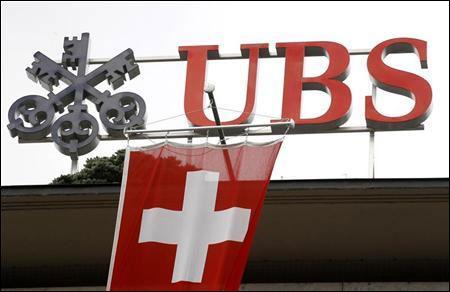

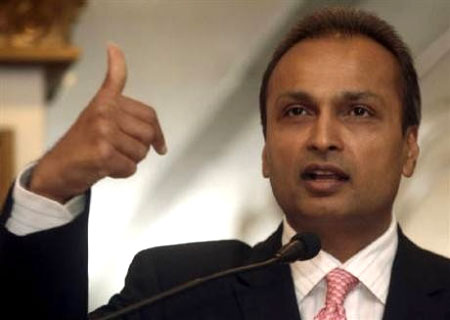
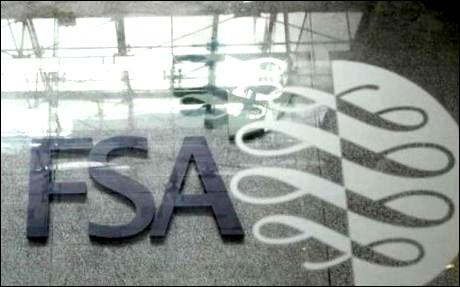
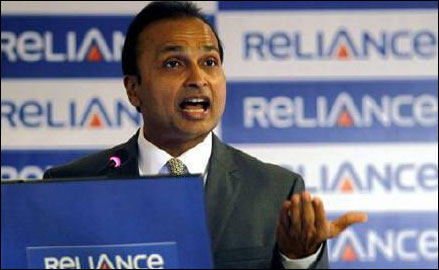
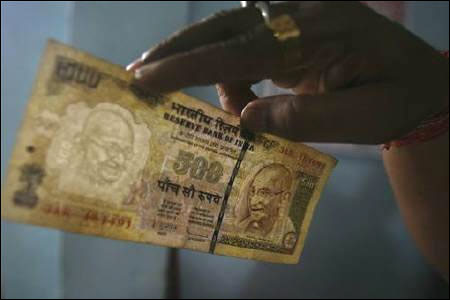

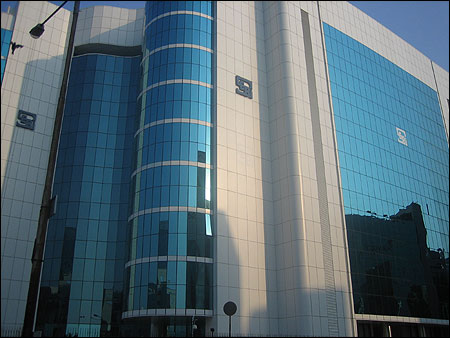
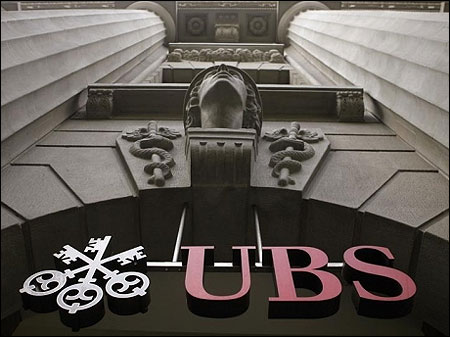

article